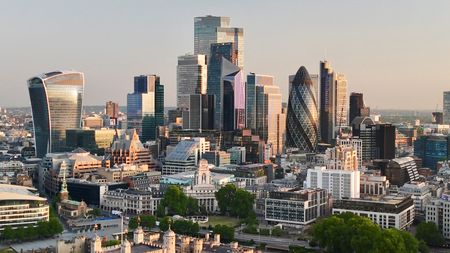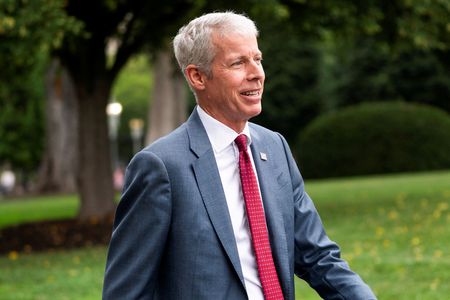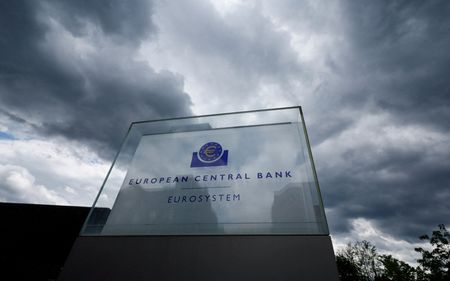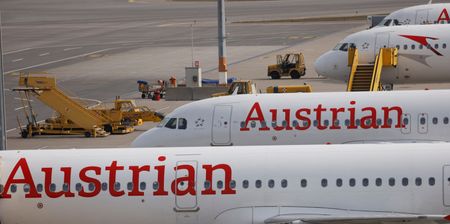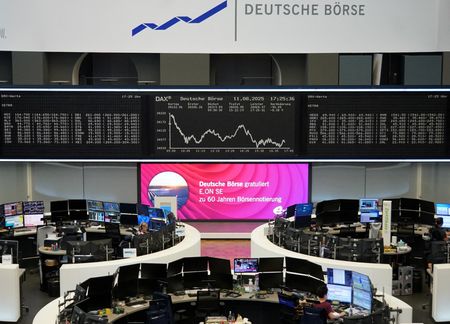By David Milliken
LONDON (Reuters) – The British public’s expectation for inflation in around five years’ time rose in August to its highest since May 2019 at 3.8%, according to a Bank of England survey on Friday, which may unsettle some policymakers ahead of next week’s rate decision.
The measure of longer-term public inflation expectations increased from 3.6% in May while expectations for inflation in the next 12 months rose to a two-year high of 3.6%, up from 3.2% three months earlier.
Surveys of public inflation expectations are not viewed by economists as a forecast, but are seen as a risk factor for higher inflation, as they increase the chance that people will push for higher wages and accept higher price increases.
Members of the BoE’s Monetary Policy Committee place varying weight on this type of survey. Some view it as more of a knee-jerk reaction to recent inflation data, while others regard it as reflecting a possible loss of confidence in the central bank’s willingness to get inflation back to its 2% target.
Net satisfaction with the BoE’s approach to controlling inflation dropped in the survey to +2 in August from +6 in May, although it is still higher than it has been for most of the past three years.
British consumer price inflation rose to an 18-month high of 3.8% in July, the highest in the Group of Seven advanced economies, and last month the BoE forecast it would reach 4% in September before returning to target in the second quarter of 2027.
The BoE cut rates by a quarter-point to 4% in August, but financial markets see almost no chance of a rate cut next week and only a roughly 40% chance of a cut later this year, according to LSEG data.
(Reporting by David Milliken; editing by Sarah Young and Philippa Fletcher)

